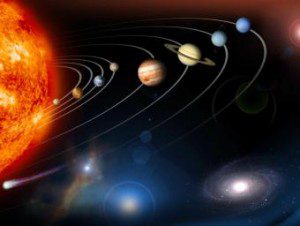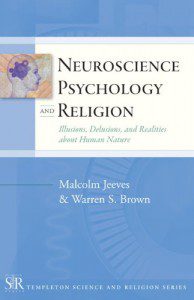 Neuroscience and psychology are fast developing fields with a proliferation of sub-disciplines and degrees offered. Our scientific understanding of what it means to be human is undergoing rapid evolution. In many respects this is the battle front in any active war between science and religion.
Neuroscience and psychology are fast developing fields with a proliferation of sub-disciplines and degrees offered. Our scientific understanding of what it means to be human is undergoing rapid evolution. In many respects this is the battle front in any active war between science and religion.
Once upon a time the front involved the form of the earth – for example, Augustine considered it plausible that “the earth is suspended within the concavity of the heavens” although he also appeared to think it an unproven conjecture, but he did not think it reasonable to suppose that there were people on the opposite side of the earth. The “fable” of Antipodes (“men who walk with their feet opposite ours“) he writes “is on no ground credible.” (City of God, Book XVI, Ch. 9). Few today doubt that the earth is a spheroid and that there are humans on the other side of the earth.
 Later with Copernicus and Galileo the primary question involved the centrality of the earth – about which the sun, the moon, and the heavens revolved. This, after all, was the clear teaching of Scripture. Today few question the perspective that we live in a sun-centered solar system and that the more accurate view is that less massive objects orbit more massive objects in an enormous universe. Day and night result from the rotation of the earth rather than from the motion of the sun over a stationary earth. (Image credit NASA/JPL)
Later with Copernicus and Galileo the primary question involved the centrality of the earth – about which the sun, the moon, and the heavens revolved. This, after all, was the clear teaching of Scripture. Today few question the perspective that we live in a sun-centered solar system and that the more accurate view is that less massive objects orbit more massive objects in an enormous universe. Day and night result from the rotation of the earth rather than from the motion of the sun over a stationary earth. (Image credit NASA/JPL)
Evidence for the age of the earth accumulated in the eighteenth, nineteenth, and twentieth century. Although some Christians still struggle with the evidence, many have no problem with it. Evolution provides a larger challenge – with the role of death in creation, the nature of sin and its relationship to death, and the place for God in the picture. Still, this impacts our understanding of Scripture and the interpretation of Scripture – but it need not strike at the heart of our understanding of humanity or theology.
 Neuroscience and related areas of psychology, including the psychology of religion provide a challenge different in many ways from these earlier conflicts. At the center is the very nature of what it means to be human. Malcom Jeeves (emeritus professor of psychology at the University of St. Andrews) and Warren S. Brown (Director of the Lee Edward Travis Research Institute and Professor of Psychology, Department of Clinical Psychology at Fuller Seminary) are Christians, experts in the area of neuroscience. I’ve had a book on my shelf for awhile, Neuroscience, Psychology, and Religion: Illusions, Delusions, and Realities about Human Nature by Browns and Jeeves that explores the issues at the forefront of neuroscience and Christian faith. Today I start a series to dig into the issues more deeply with their book as a guide.
Neuroscience and related areas of psychology, including the psychology of religion provide a challenge different in many ways from these earlier conflicts. At the center is the very nature of what it means to be human. Malcom Jeeves (emeritus professor of psychology at the University of St. Andrews) and Warren S. Brown (Director of the Lee Edward Travis Research Institute and Professor of Psychology, Department of Clinical Psychology at Fuller Seminary) are Christians, experts in the area of neuroscience. I’ve had a book on my shelf for awhile, Neuroscience, Psychology, and Religion: Illusions, Delusions, and Realities about Human Nature by Browns and Jeeves that explores the issues at the forefront of neuroscience and Christian faith. Today I start a series to dig into the issues more deeply with their book as a guide.
From the preface:
No area of our existence seems safe from the probing eyes of the brain scanners. Even our religious experiences have come under the scrutiny of “neurotheologists.” The research findings seem so critical to the understanding of our selves as human beings that they are frequently given wide publicity outside of the academy.
What are we to make of it all? How much of our understanding of human nature are we being called upon to rethink? Do we have souls? Are we apes on the way up or angels on the way down? (p. vii)
And chapter 1:
Are human behavior and experience nothing more than the outcome of the physiological functioning of neurons or of the laws of physical chemistry governing the molecules that make up neurons? This consideration finally leads us to the specific question of how human nature can be interpreted from the perspectives of science, religious worldviews, and our inner subjective experiences. (p. 4)
This may not be much of an issue in your circle of acquaintance, but it is an active concern in the University – and often for students exposed to the study of neuroscience and psychology. It becomes another area where the mantra repeats … science disproves God. I wish I had this book (or some of the others by Malcolm Jeeves) a decade ago when I taught a class on Science and Christianity at church. I was prepared to discuss the kinds of issues we often raise on this blog surrounding evolution and the interpretation of the Old Testament when confronted by a student quite emphatic that neuroscience was where the real problems arose.
The problems haven’t faded away over the ensuing years. Psychology has moved, at least in part, from the realm of behavior and social science to the realm of hard sciences interfacing chemistry and physics and biology in a quest to understand what and who we are. Neuropsychology and evolutionary psychology are growing fields. “Neuropsychology and evolutionary psychology have produced much of our best scientific data on human nature, and so, unfortunately, these are fertile fields for the new advocates of “warfare” between science and religion.” (p. 10)
Although, as with any field of human investigation, there may be some areas where the scientific perspective oversteps the evidence and others where traditional (Christian) understandings will need to be revised, both Jeeves and Brown believe that the warfare model is overstated and there is room for a fruitful partnership between neuroscience and Christian faith. Join us as we dig into the issues more deeply.
Does neuroscience challenge Christian faith?
Has this been an issue for you, or those you know and try to reach out to?
If you wish to contact me directly you may do so at rjs4mail[at]att.net
If interested you can subscribe to a full text feed of my posts at Musings on Science and Theology.















